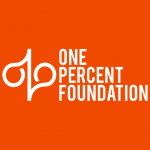 The rise of crowdfunding has offered people new ways to get involved in philanthropic ways. Most have built upon the work done by the likes of Kiva and other micro-lenders that have offered people the opportunity to send small sums directly to entrepreneurs in the developing world.
The rise of crowdfunding has offered people new ways to get involved in philanthropic ways. Most have built upon the work done by the likes of Kiva and other micro-lenders that have offered people the opportunity to send small sums directly to entrepreneurs in the developing world.
A slightly different approach is the giving circle, whereby groups of individuals donate their own money or time to a pooled fund. This is the model taken by the 1% foundation.
The premise of the site is simple. People agree to donate 1% of their paycheck to a good cause alongside those of like mind. To achieve this, a calculator on the site works out how much you’d donate, and users then set up a monthly credit card payment for that amount.
The site contains content from the University of Maryland Center for Philanthropy to help users understand the process and where to direct ones funds and energy. The site also explains how to do your due diligence, including researching and assessing the finances, leadership and impact of various organisations, so they do their utmost to ensure people are aiming in the right direction.
Once a giving circle has been created, the users vote on the organisation that will receive their collective donations, with the website aiming to help with the nomination, assessment and voting to guide members through the grantmaking process.
If the idea of getting friends together sounds daunting, you can join circles that already exist. The largest is the Next Gen Circle, with 75 members that have raised over $400,000.
The Next Gen Circle is a national giving circle that focuses on 5 different issue areas that cycle through by quarter: Health, Environment, Poverty, International Aid & Education.
It’s a bit of a shame that you can’t find out more about the people in the circles already. At the moment it only shows their name and profile photo, so you can’t gain an idea of whether existing members are like you or not.
Giving circles aren’t something I’ve come across before, but they appear to be a nice idea, with the 1% foundation a nice version of them. With so many civic crowdfunding sites on the market the whole area seems ripe for consolidation. Will the 1% foundation have enough about it to survive? The nice thing about crowdfunding sites is that they fund specific projects, so there is a clear end goal in mind.
The 1% foundation by contrast seems to fund organisations as a whole, so it’s possible that people will be skeptical that their money is going on worthy causes rather than admin. Of course, whether that’s a fair statement or not rests largely on the efficiency of the organisation.
Giving circles are an interesting idea though, and I therefore wish them the very bets of luck. You can find out more about the site from the video below.